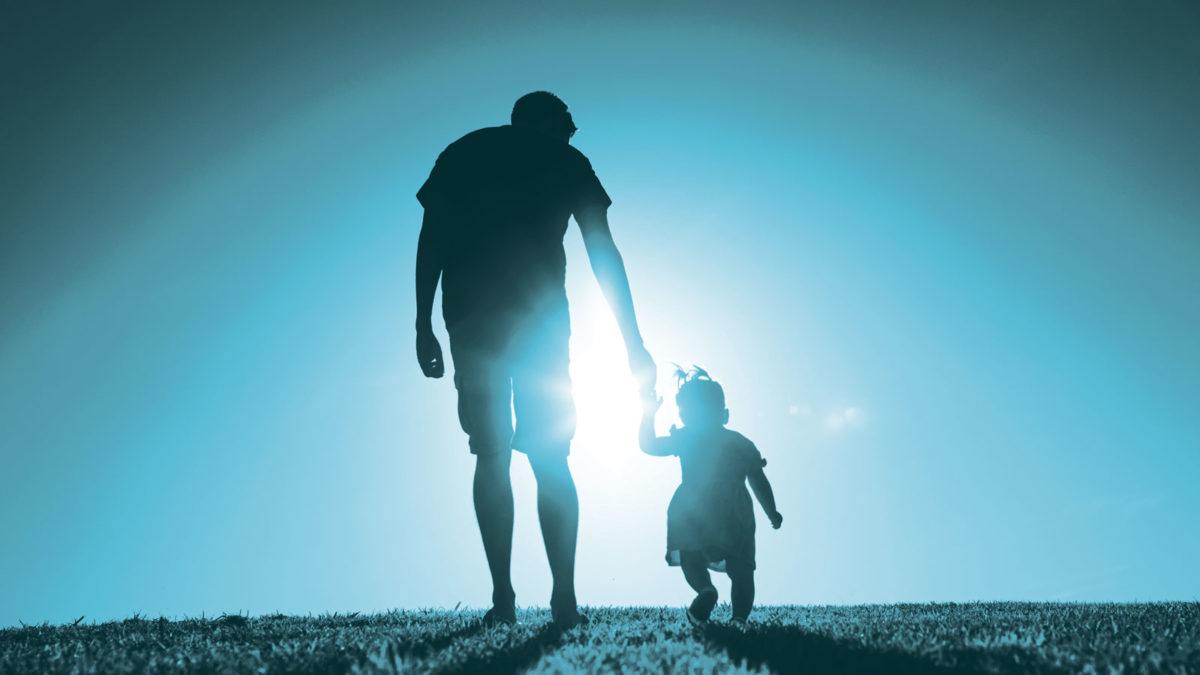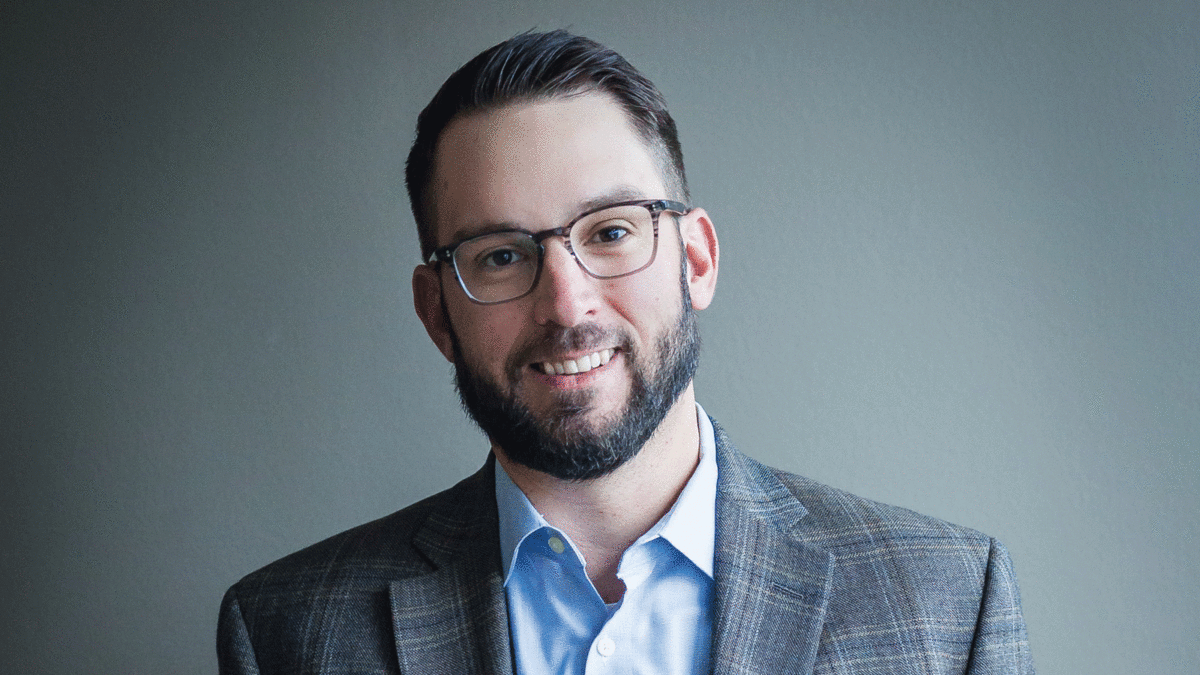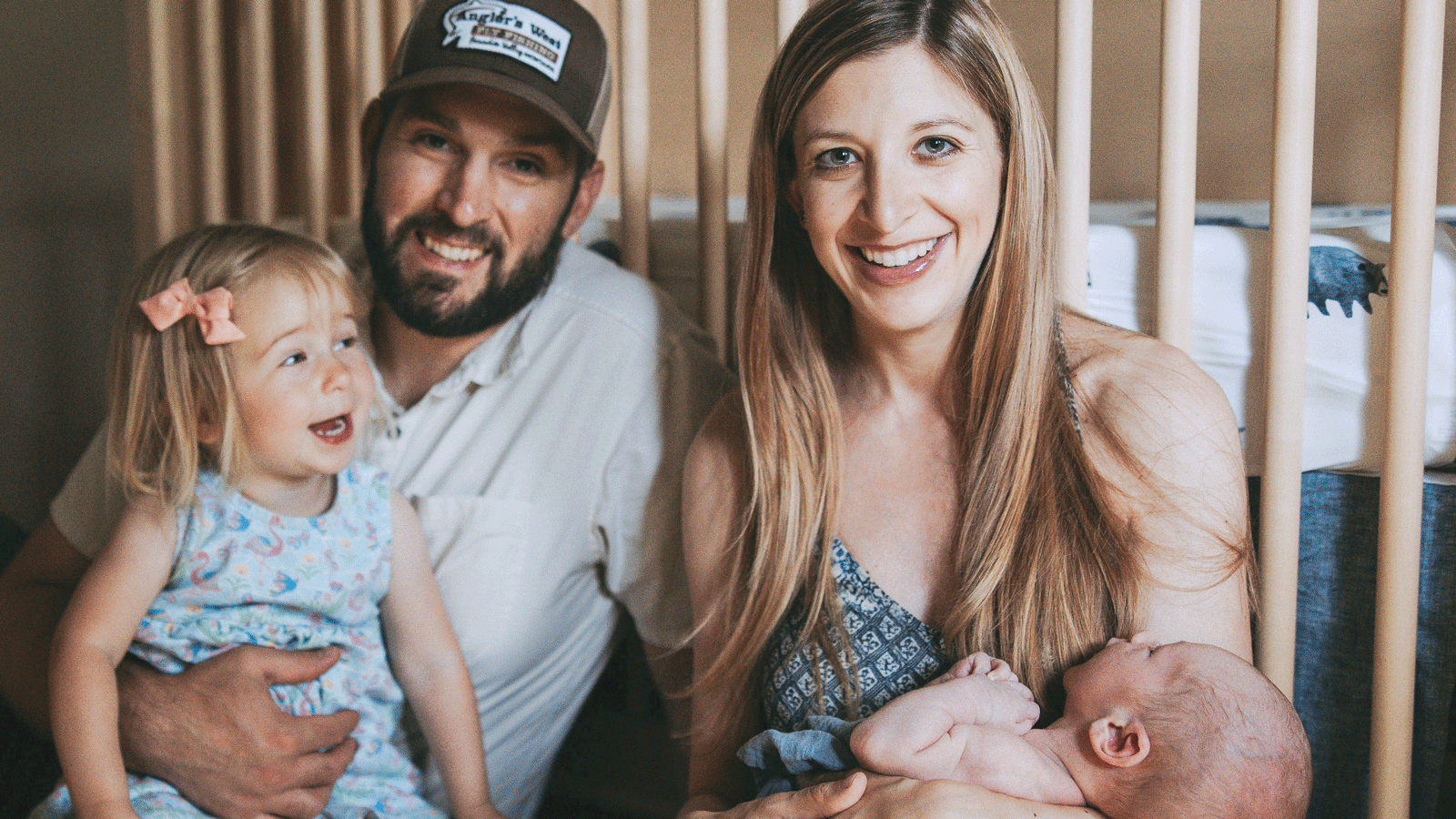
Connecting with CBA YLD Chair James Fogg
November 2022
Download This Article (.pdf)
When asked what he sees as the biggest challenge facing the CBA Young Lawyer Division, James “Jim” Fogg, who began his term as YLD chair in July, says it’s getting lawyers to prioritize connection among a sea of competing interests. “I think the biggest challenge is to show young lawyers that meaningful participation in the bar is worth the time and effort.” But for a generation dealing with the pressures of being a new lawyer, a generational shift in family dynamics, and what Fogg calls our “choose-your-own-adventure” society, bar involvement can be a hard sell.
“The reality is there’s simply less time to devote to volunteer participation,” explains Fogg. “More and more often, both parents work, not only out of a desire to do so, but also as a result of a need to do so to achieve the financial stability we all desire for our families. This is especially true in places like Colorado, where the cost of living has risen dramatically in recent years and salaries are still catching up. People are inclined to focus on activities that stand to increase family revenue versus activities with no immediate financial benefit.”
Law firm culture also plays a role. “It’s now the norm for lawyers in civil practice to have minimum billable requirements, and I think if you asked a hundred young lawyers in civil practice what the priority is at work, most would say ‘to meet or exceed the minimum billable requirement.’ That mentality is problematic for a number of reasons, but—particularly pertinent here—I believe it downplays the value of participation in organizations like the bar.”
The Problem of Selective Engagement
Adding to the financial and work pressures is a society that emphasizes selective engagement. “Society provides more and more opportunities to tune into your immediate wants and needs and ignore anything that falls outside those categories. For my generation, selective interaction decreases engagement with professional organizations like bar associations. It can be tempting to forego spontaneous, personal interaction at a bar event and instead engage online with someone across the country who you already know.
“Obviously, there are upsides to that sort of connectedness, but I think there are downsides too, including isolation from your own community. We all need to be conscious of how we spend our time and make sure we’re not missing out on opportunities just because there’s a less intimidating or more comfortable interaction available.”
As YLD chair, Fogg wants to show young lawyers that CBA involvement is “worth the squeeze.” Put another way: “It’s a long game. Building relationships takes time, but relationships pay off, whether it comes in the form of professionalism, business development, or personal enrichment. I also want to focus on providing a wide array of opportunities to engage in, which stands to capture more people in the fragmented society we all live and operate in.”
Learning Curves
The importance of connection and helping others is something that Fogg’s parents instilled in him from the beginning. His mother, Patricia, worked as a speech pathologist, and his father, Mark, is a lawyer (and a former CBA president). “Both my parents have always been role models, particularly because of the values they instilled in me when it came to serving others.”
Fogg learned about the legal profession “from the get-go” through his father’s work as a district attorney and later as a trial lawyer focused on professional malpractice defense. But Fogg wasn’t always sure he wanted to be a lawyer. In fact, he says, “Watching my dad practice resulted in some long periods of hesitation and consternation about being a lawyer. Growing up around a bunch of lawyers who told me horror stories about law school—I was terrified of it.”
But he faced his fears and ultimately enrolled at the University of Denver Sturm College of Law, which turned out to be a great fit. “DU Law was full of great people and offered me the right mix of in-class and out-of-class opportunities.” Among his favorite extracurriculars was mock trial—he was a member of the National Trial Team and later ran a 1L mock trial tournament between the University of Denver and the University of Colorado. He also worked in the Environmental Law Clinic for a year and was an articles editor for the school’s Water Law Review.
By the time he left law school, Fogg had a considerable amount of experience. Even so, the transition to practicing law was challenging: “Practicing law is hard and practicing as a new lawyer is even harder. Frankly, that’s why I liked DU Law so much—they really encouraged us to get out and start working during law school. I tried to get as much practical experience as possible during law school, and I worked in law firms and was always looking for any substantive work they were willing to give me. By my third year, I was largely going to work as a law clerk during the day and going to school at night or on the weekends.
“And, after law school, I was able to clerk for the Honorable James Casebolt of the Colorado Court of Appeals. That progression really helped me develop the skills necessary to practice and flatten that learning curve, if only by a little bit, by the time I started practicing. Getting that experience early on is crucial, in my mind anyway, for lessening the steep curve that faces young lawyers.”
Balancing Act
Fogg’s voracious approach to work makes sense considering his decision to become a trial lawyer. He had double majored in political science and environmental policy as an undergrad at the University of Colorado in Boulder, and he went on to law school thinking he would become an environmental lawyer. Ultimately, however, he found that trial work checks all the right boxes for him.
“Doing trial work offers a unique opportunity to help someone in what is likely one of the worst, or at least most stressful, times of their lives. I do a lot of plaintiffs’ side legal malpractice work and really enjoy two aspects of that work. First, I get to shoulder, and ideally solve, a problem that a person or company faced that was made worse by a lawyer. Second, because legal malpractice cases involve a ‘case within a case’ analysis, I get exposed to all sorts of different types of industry and law. All of that makes it interesting, keeps it engaging, and keeps me on my toes.”
The past few years certainly saw Fogg on his toes as he juggled work and raising two small kids amid the pandemic. “My daughter, Addie, was born in May 2020 and my son, Jack, in June 2022. I must admit there were moments where I just got fed up with playing six degrees of COVID separation for three hours on a Saturday to figure out how to avoid sending my daughter to daycare with someone who had been exposed to or tested positive for COVID-19, just to be able to then go to work. Fortunately, I work for and with people who understand these pressures and are willing to adapt, as we all have had to adapt over the past two to three years.”
Fogg is quick to note the pandemic’s silver lining: “It has never been more clear to me that my family is, and should always be, my number one priority. Being a husband, and now a dad, has been the best thing I’ve ever done in my life. And my young family could not have made it through the last two and a half years without the love and support of my larger family here in Denver. My mom and mother-in-law literally got us through taking care of Addie, allowing us to maintain our careers during the worst of the pandemic. But, more generally, it was my family who prompted me to devote my career to serving others as a lawyer, and it’s been their support that’s kept me working hard in this demanding but very rewarding profession.”

Looking Ahead
As he moves forward with his work in the YLD, Fogg reflects on his best advice for other young lawyers—“take advice from as many people as you can get to give it to you, but make the decision yourself”—and the best advice he’s ever received—“ask questions.” This advice is sure to serve him well as he asks other young lawyers to consider the benefits of connecting with others through the bar association.
With a full slate of events already planned—including happy hours, a Women’s March event, a yoga workshop, a fly-fishing outing, and seminars on storytelling and the power of language—Fogg believes every lawyer can find community and connection through the CBA. They just have to make a little time for it. 
Fogg wasn’t always sure he wanted to be a lawyer. In fact, he says, ‘‘Watching my dad practice resulted in some long periods of hesitation and consternation about being a lawyer. Growing up around a bunch of lawyers who told me horror stories about law school—I was terrified of it.’’


